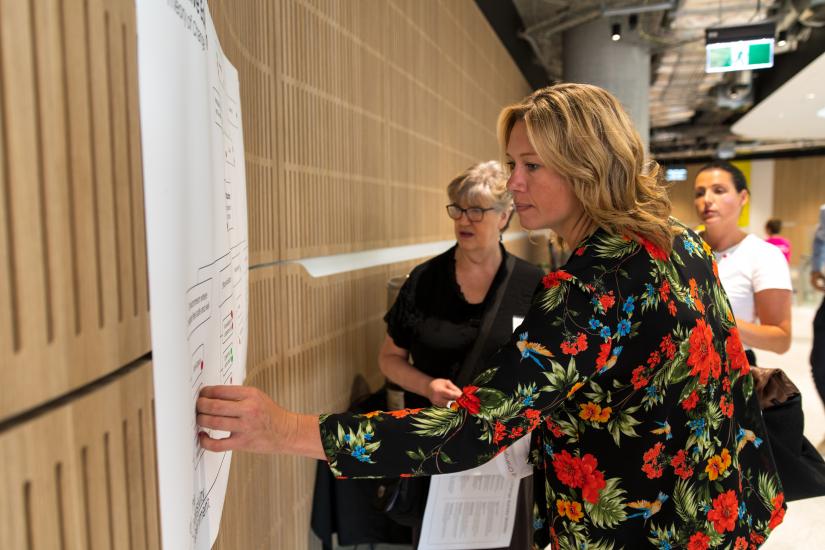The Inclusivity Experiment is an initiative built to challenge conventional ways of thinking about inclusivity. We are fast approaching new frontiers of tech, design systems and behavioural patterns that will shape our movement through the world and so we’re asking ‘how do we as educators, technologists and designers, ensure that the world we’re creating is one where everyone is welcome?
The experiment was initially launched in 2018 at Spark Festival, Australia’s largest event for start-ups, innovators and entrepreneurs. This launch event included a series of lightning talks to illuminate the need for inclusive and diverse design practices. This was followed by a second iteration that sought to propel the conversation forward and provide practical steps to ensure that people who are normally excluded from the design process are included.
For this year’s Spark Festival event, we wanted to provide an opportunity for participants to be involved in co-creating the future of ethical education, making a unique contribution to educational outcomes for the next generation and thus the wider community through diverse, conscious and inclusive leadership of our graduates.
With the workshop marking the first step in developing ground-breaking new inclusive curriculum approaches, it was facilitated and developed with UTS (Centre for Social Justice and Inclusion, Student Access Ambassadors and The Faculty of Transdisciplinary Innovation), Centre for Inclusive Design, Remarkable and Canva. This diverse team was crucial in bringing a range of voices and rich experience to the development process and workshop itself.
Throughout the workshop we challenged participants to question their existing ideas and then provided an opportunity for participants to creatively explore experiences of inclusion in education, coming together to develop practical and real-world recommendations beyond the current knowledge and practice. Prior to the workshop, a survey was sent to participants and broader networks to gather experiences of inclusive education. These findings were analysed and displayed as an interactive ‘theory of change’ map that welcomed participants as they arrived. Participants were asked to identify areas within the education space that were ‘done well’ and those in which we could ‘do better’.

Areas identified as ones in which we are doing well included; support through institutional resources as well as facilitators who had the ability to operate with empathy. Whereas leadership, mindful and inclusive teaching, flexible and multi-dimensional teaching approaches were identified as areas in which we could improve.
Utilising these areas for improvement, participants were taken through a collection of fast-paced, interactive activities in which they could work in small groups to develop recommendations. At one point, we had the entire room undertake a rapid-ideation sketching activity where they had one minute to interpret, build upon and sketch out an idea before moving onto another – it was absolute chaos but so much fun. It also yielded extremely valuable ideas and suggestions to move towards the creation of an inclusive educational environment.

The morning culminated in the sharing of ideas which included everything from a metaphor that captures the ideal state of inclusive education to a display of what the journey from the present to an inclusive future would look like. In just under an hour, participants were able to come together and develop a range of ideas that were diverse, incredibly rich in detail and applicable.
In challenging how we think about and approach inclusivity in the education space, we sought to provide a co-creation experience in which all voices were heard, and nobody’s contribution was missed. Many participants expressed their enjoyment of the workshop as well as their interest in continuing to be part of the co-design process. With incredible findings, insights and recommendations from this year’s Inclusivity Experiment, we’re looking forward to further developing new approaches to inclusive curriculum at UTS.
If you’re interested in being part of this development process and believe you have something to offer you can reach out to Arif Ongu (arif.ongu@uts.edu.au) or Lucy Allen (lucy.allen@uts.edu.au).


